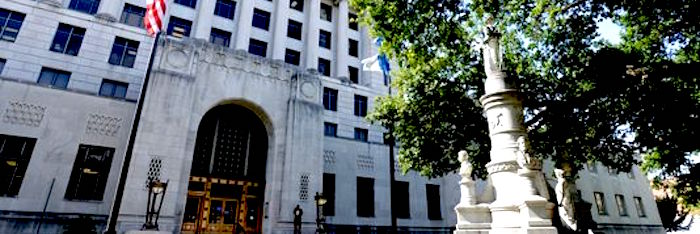“If it looks like a duck, swims like a duck, and quacks like a duck, then it probably is a duck,” right? This is often said when you are making a point you can identify an unknown situation by merely observing the characteristics of that situation. Well, in 2015, 56% of conservative Louisiana voters believed John Bel Edwards looked, swam, and quacked like a “conservative Democrat,” which is really an oxymoron – kind of like being an “honest thief” or a “wise fool,” because there’s really no such thing. No, John Bel Edwards, is just a plain old-fashioned, bitterly partisan, tax-and-spend liberal, and there’s nothing accidental about him, or Louisiana’s “fiscal cliff.”
Yes, it’s true that the state budget was around $25 billion when Edwards was elected into office. But today, under Edwards, he’s grown Louisiana’s budget to $29.6 billion. Even if you make the point that Bobby Jindal underfunded many state departments and programs, in order to maintain state services, fund TOPS, etc., and that Edwards had no choice but to restore the necessary financing, should that be nearly $4 billion? I mean, not only did the budget grow nearly 20%, in a state whose population growth is among the lowest in the nation, but he added insult to injury by raising $2 billion with sales tax increases.
Louisiana now has the highest sales tax rates in America, an “accomplishment” that only Edwards can lay claim to, because that wasn’t true before he took office.
With the 2018 legislative session on the horizon, and a $1 billion plus deficit in the state’s budget, what is Edwards’ plan? Well, businesses and wealthier folks will pay higher taxes, if Edwards gets his way, and one way he’ll do it is by limiting tax deductions.
Really? But look around the country. Since President Trump signed tax reform into law on December 22, over 80 companies have publicly announced bonuses, wage increases or other kinds of benefits they’re offering employees. AT&T: $1k bonuses for 200,000 U.S. employees, Southwest Airlines: $1k bonuses for 55,000 employees, Waste Management: $2k bonuses to 34,000 eligible employees, and the list goes on, and on.
Governor Edwards, don’t you realize that decreasing the tax burden on the American people – the promise of cutting unnecessary regulations and reducing the size of government – has resulted in the lowest unemployment rate in over 18 years? The stock market has rallied, home prices are rising, and manufacturing jobs have rebounded – across the country.
And yet, here in Louisiana, our Governor is just rearranging the deck chairs on the Titanic, instead of looking at what is ALREADY working around the country, and then just doing more of that, instead. After all, we can‘t solve problems by using the same kind of thinking we used when we created them, can we?
Oh…it’s more complicated than that? But why does it have to be? Because some old-fashioned, big government, tax-and-spend legislators in Baton Rouge say it is?
Okay, that’s fine, then. Keep your decades of charts, Excel spreadsheets, and long lunch meetings in Baton Rouge that have produced little more than bowel movements, and let’s just feed off common sense for a moment.
You know what strengthens an economy, and creates jobs? The free market economy and small businesses. When you REDUCE taxes and regulations, businesses hire more employees, they expand their facilities, and then purchase new goods and services to meet the market demand.
That means they go out and buy trucks and tools and computers, and anything else needed to meet the demand. And when those businesses start hiring, that means folks from out of state will come (home) to Louisiana because they want a good job, and not just another government check from the state.
Governments do not create wealth. They can influence the distribution of wealth, by providing financial incentives, but they do not create it, regardless of how much they spend. They just move it around.
And the reason government spending does not create wealth is because the source of government spending is tax revenue, right out of the pockets of taxpayers.
This deluge of poor fiscal management, and higher and higher taxes, from the Governor on down, isn’t just running off our backs any more, like it would on any good duck – and unless we’re willing to drain the bayou here at home, it’s surely going to drown us first.







